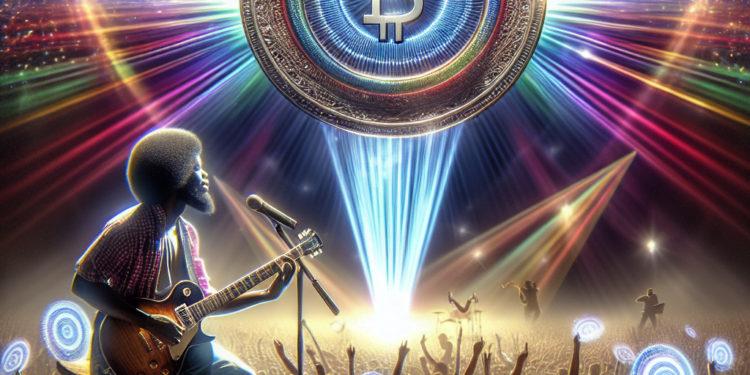As technology continues to evolve and shape our world, it’s no surprise that it’s making a significant mark in the music industry too. One of these game-changing advancements is the advent of Non-fungible Tokens (NFTs). Wait, what? Non… fugible… what?
What are NFTs, Anyway?
NFTs, or Non-fungible tokens, are a type of digital asset that represent ownership or proof of authenticity. These digital tokens are built on a blockchain platform, most commonly Ethereum. Unlike cryptocurrencies like Bitcoin or Ethereum, which are identical and can be exchanged on a like-for-like basis, NFTs are unique and have distinct value. This feature is what makes NFTs ideal for tokenizing all sorts of digital and physical assets, ranging from artwork to music, virtual goods, and more.
A New Dawn for Musicians?
Now you’re probably wondering, how can this impact the music industry?
Imagine a world where musicians could sell their music directly to fans, bypassing intermediaries, and retain full control over their creative output. That’s exactly what NFTs can offer; an opportunity to revolutionize the music economy. Musicians can mint their music into NFTs, release it on a digital platform and sell it directly to their fans who can collect, trade or resell the music NFTs.
Moreover, NFTs could also enable artists to fractionalize ownership and offer fans a share in future revenues. For instance, a band could tokenize a limited-edition album into several NFTs and sell them to their fanbase, allowing the fans to share in the album’s success.
Existing Applications
This is not a futuristic dream but a present reality. Several artists, major and independent, have started exploring the NFT landscape and have successfully tokenized their music. For instance, the iconic rock band, Kings of Leon, became the first band to release an album as an NFT. Electronic musician Grimes sold $6 million worth of digital art as NFTs.
Potential Hurdles
While the potential of NFTs seems promising, it’s not without its challenges. The most critical of these are environmental concerns. The NFT minting process requires high energy-consuming computations leading to a substantial carbon footprint.
Conclusion
NFTs undoubtedly have the potential to disrupt traditional models and bring forth a new era in music, fostering a healthier, more equitable ecosystem where artists and their fans thrive together. While we acknowledge the existing hurdles, the idea of decentralization and power to artists that comes embracing this new opportunity is indeed worth exploring.
Read more trendy articles like this on DeFi Daily News.
Frequently Asked Questions (FAQs)
1. What is an NFT?
An NFT, or a Non-Fungible Token, is a kind of digital asset that represents ownership, proof of authenticity, and is built on a blockchain platform.
2. How can NFTs be used in the music industry?
Musicians can monetize their music by turning it into NFTs and selling them directly to fans. By doing this, artists bypass intermediaries, retain full creative control and potentially share revenues with their fanbase.
3. Do NFTs have any setbacks?
The hype around NFTs is not without its challenges. There are major environmental concerns raised as the process of minting NFTs leaves a substantial carbon footprint.



















